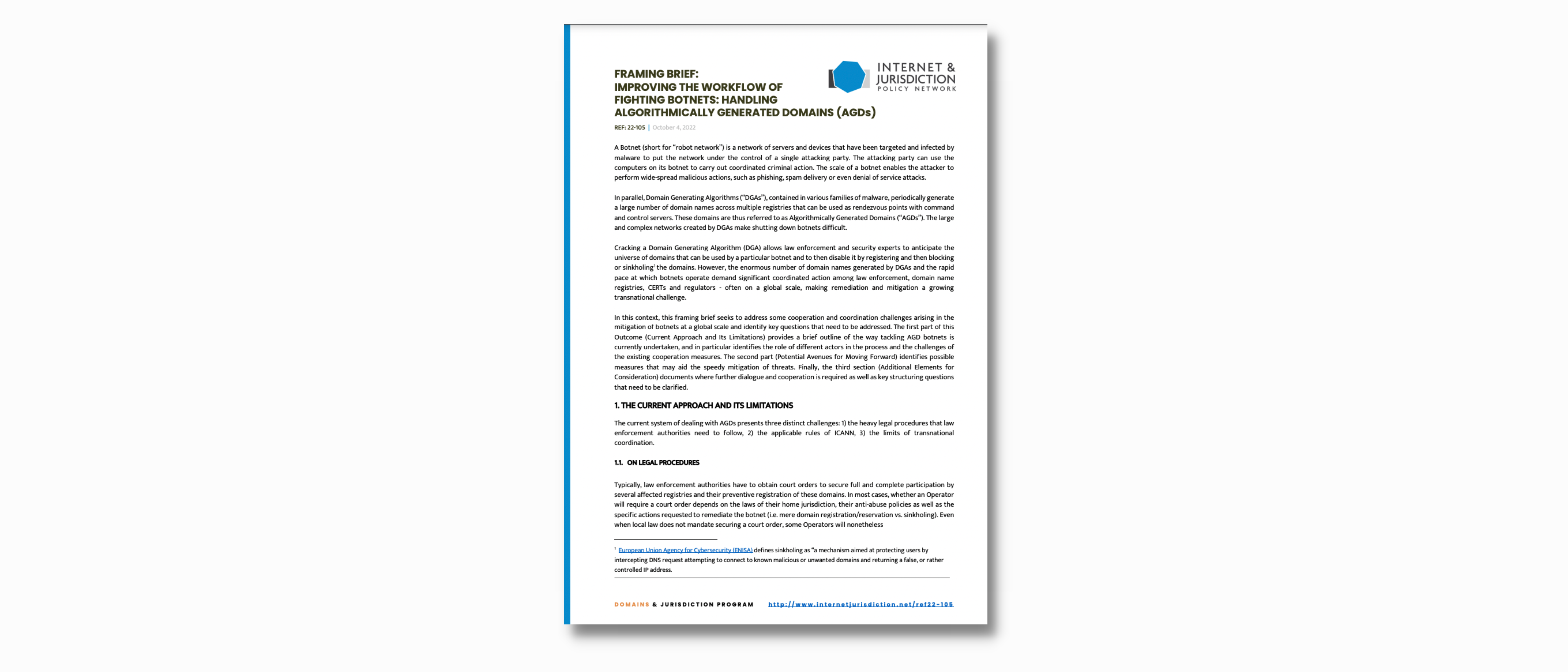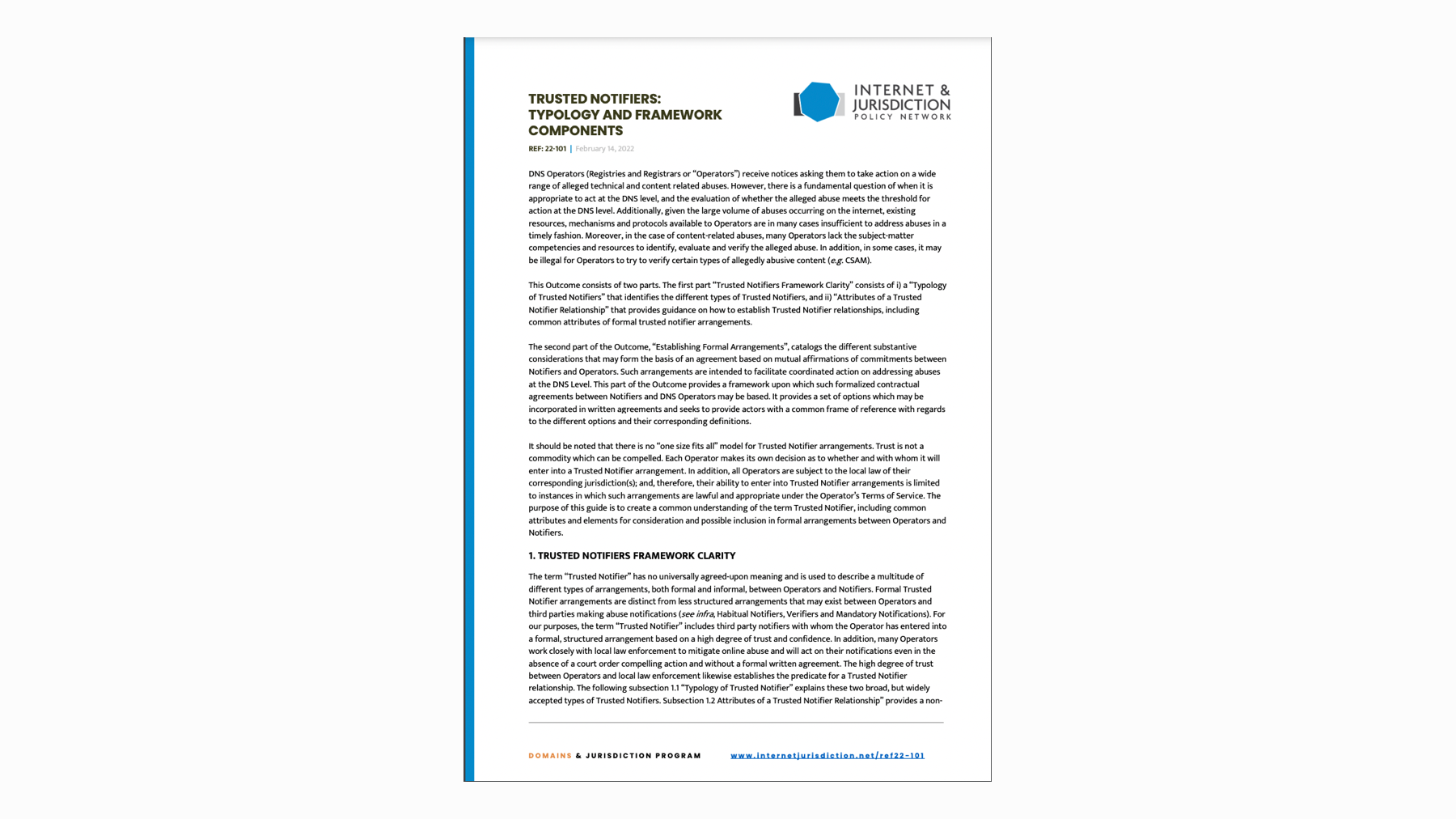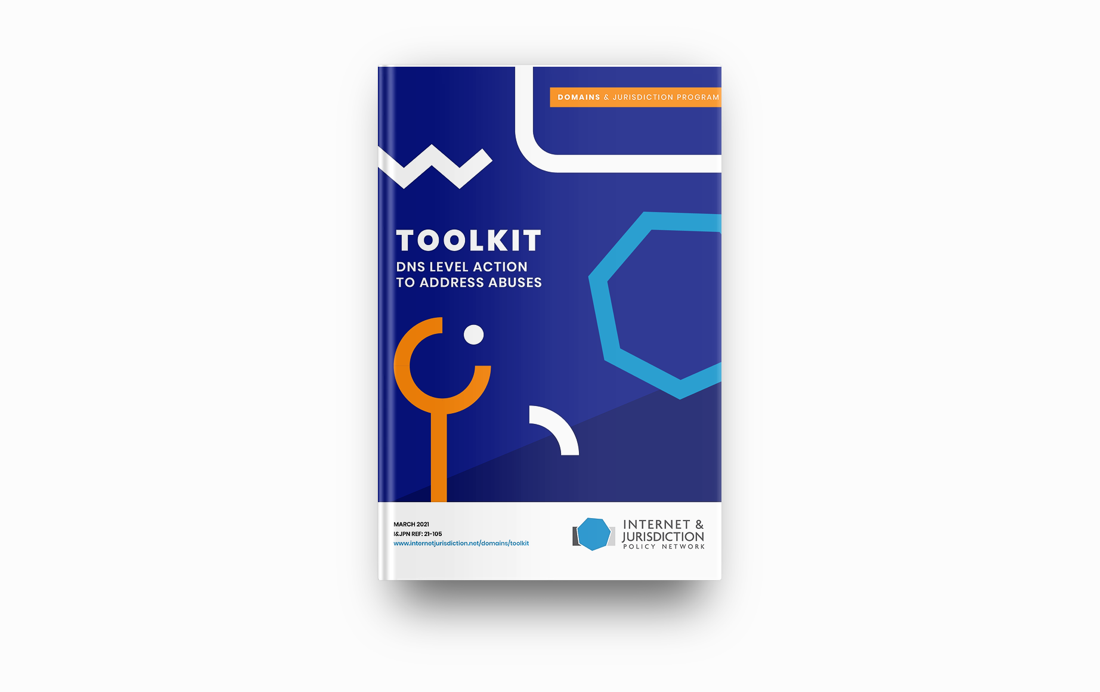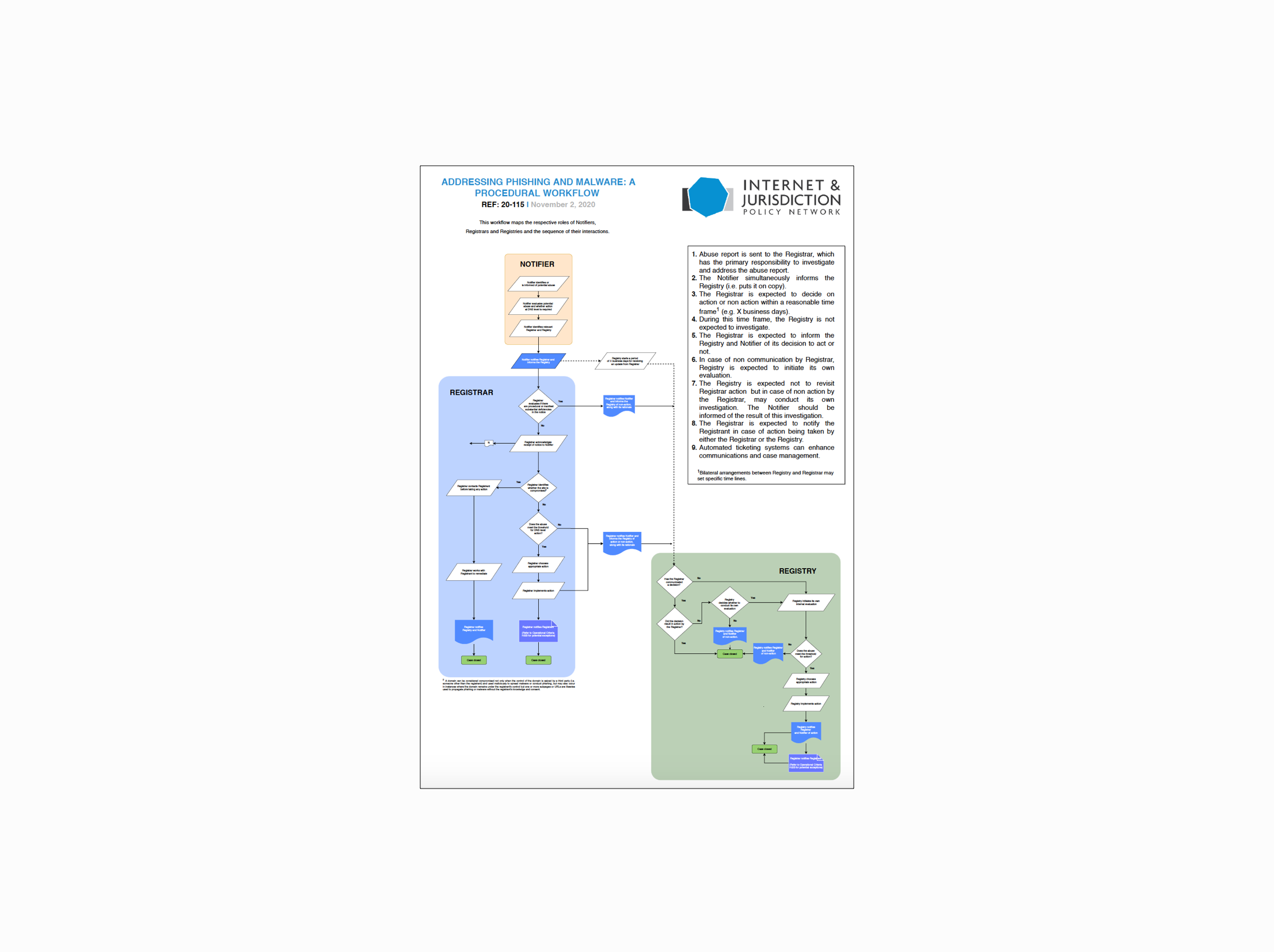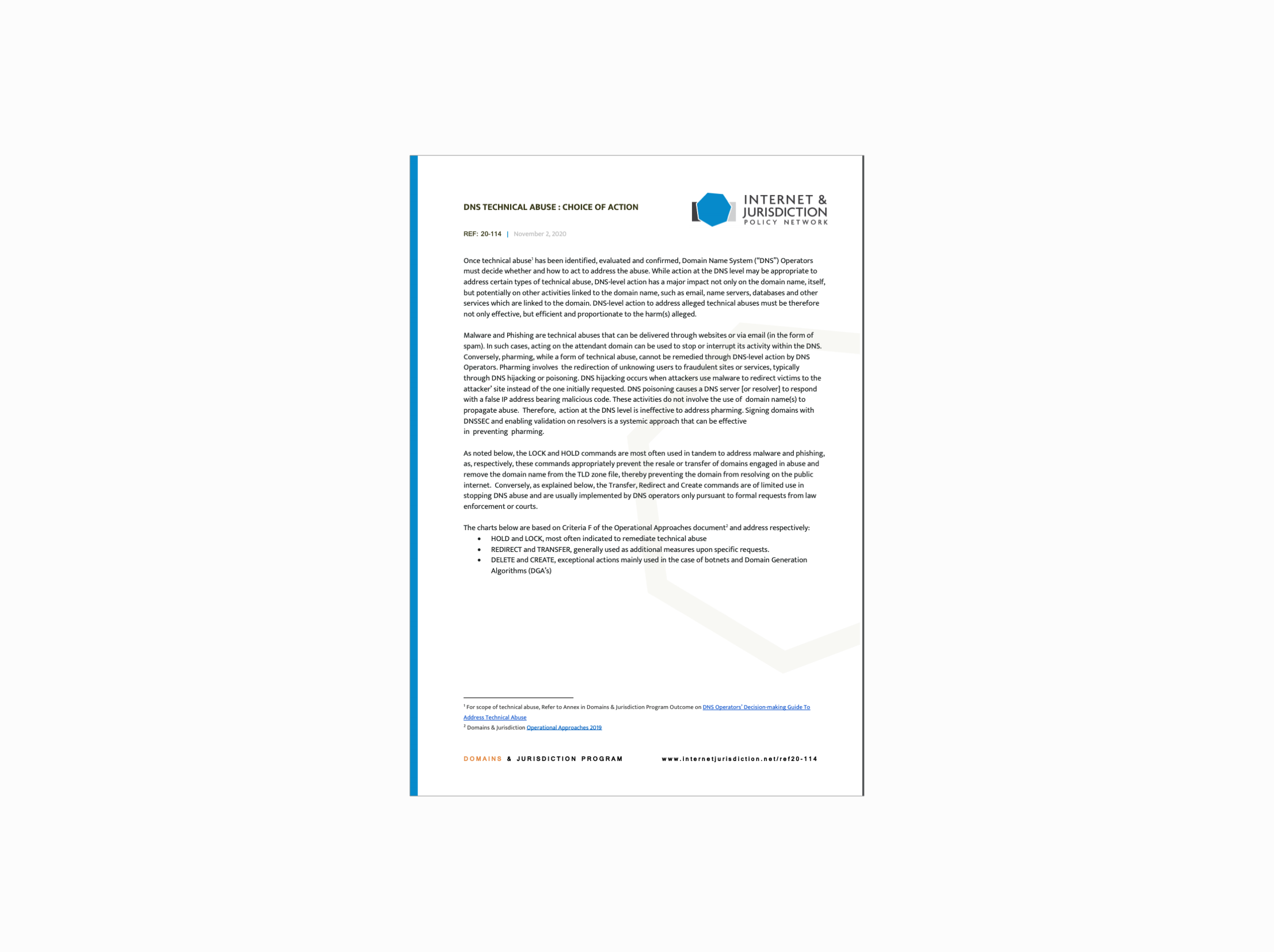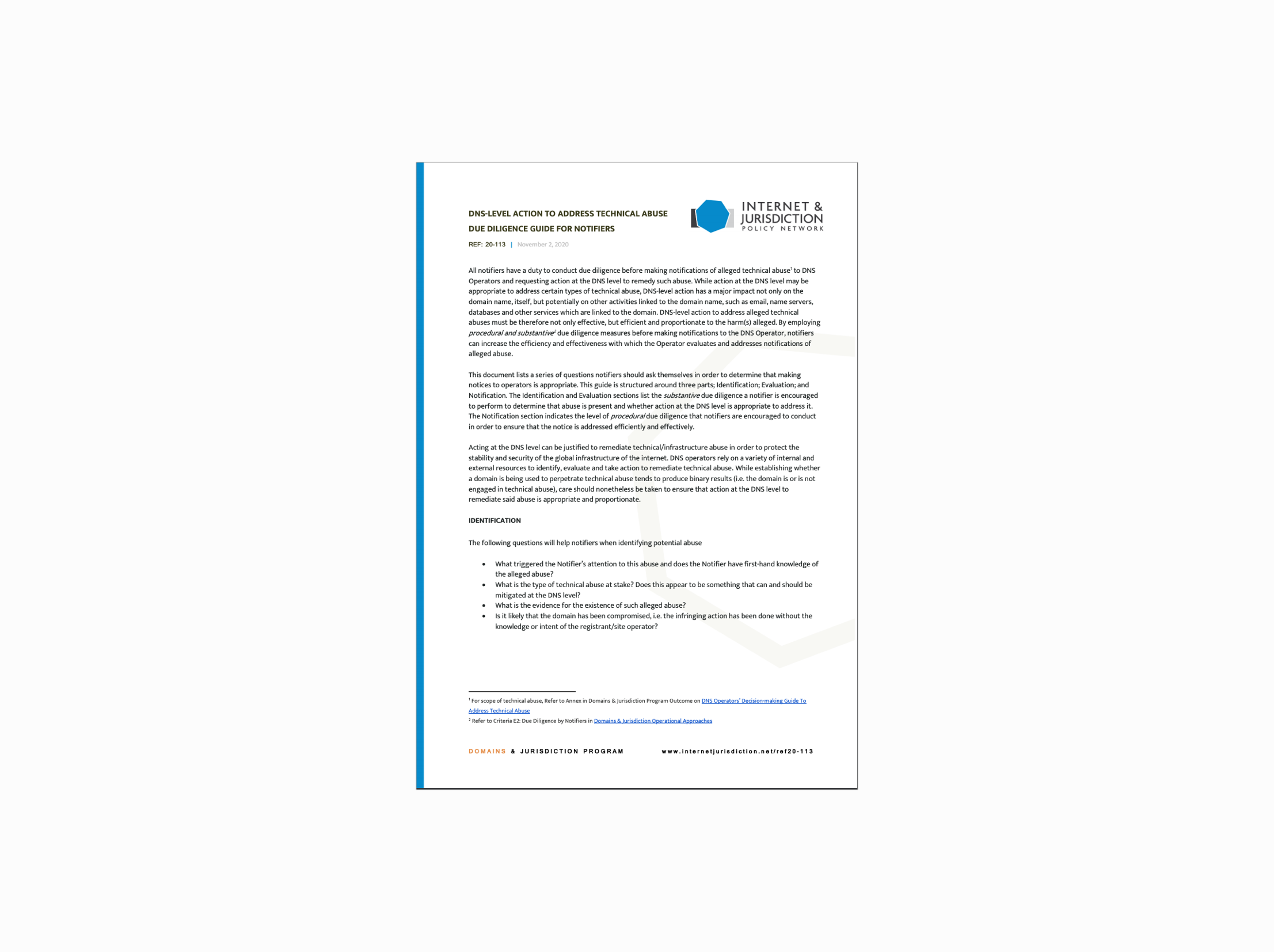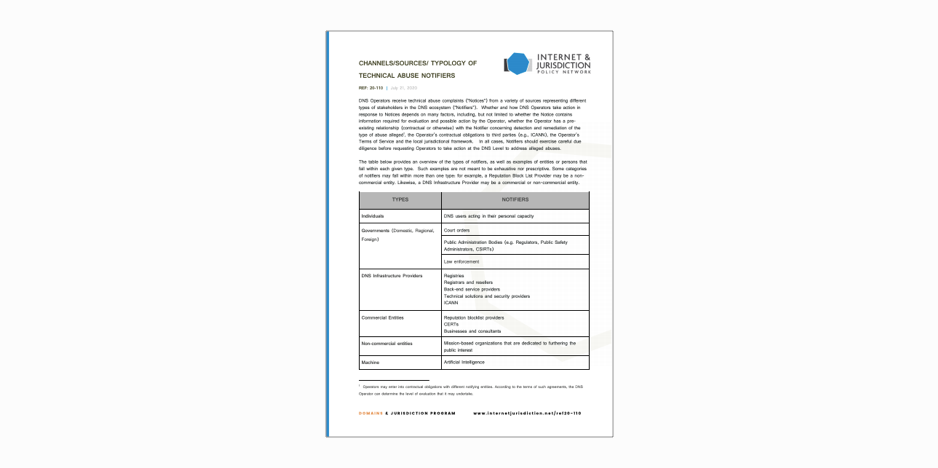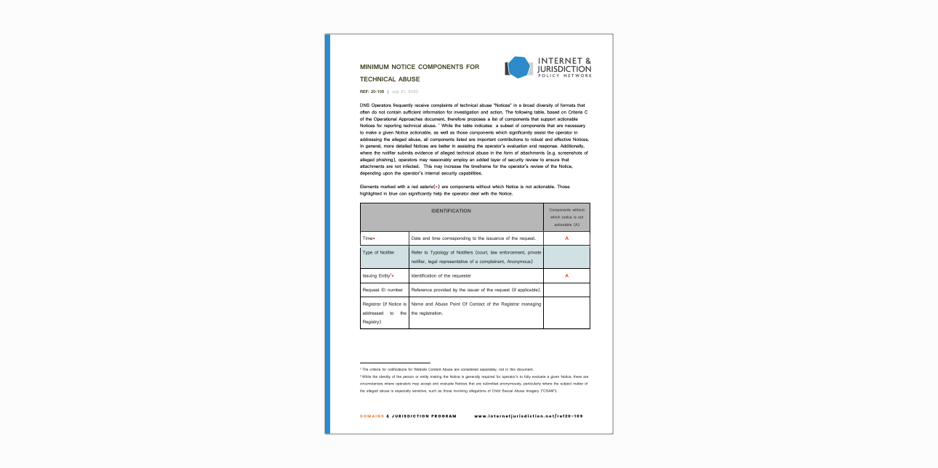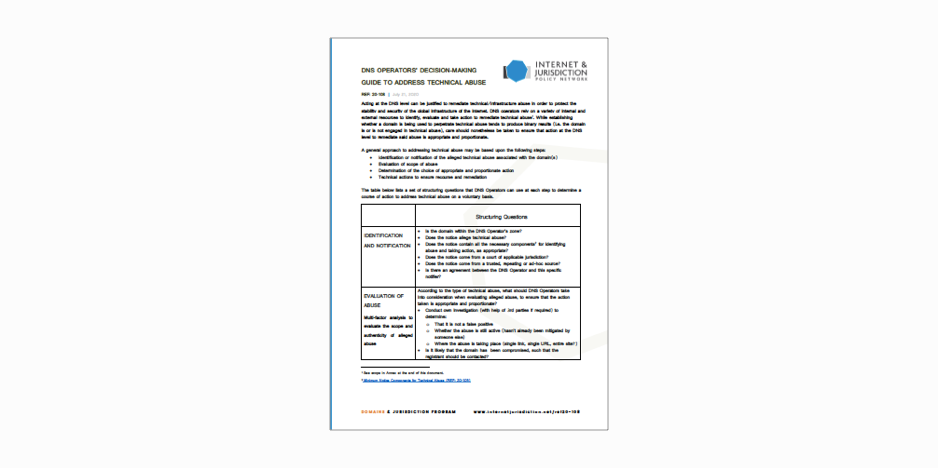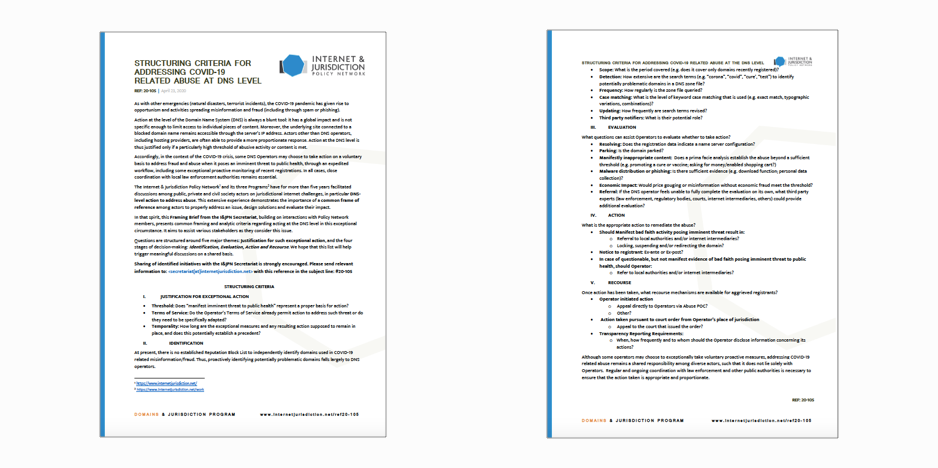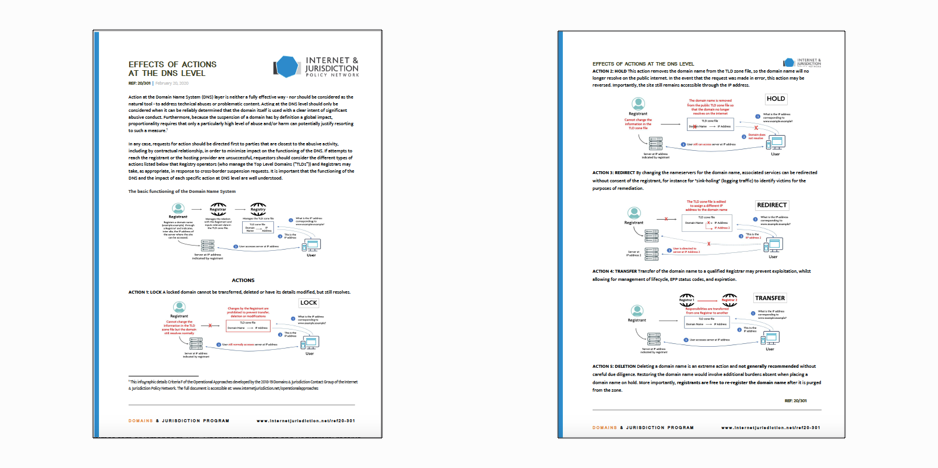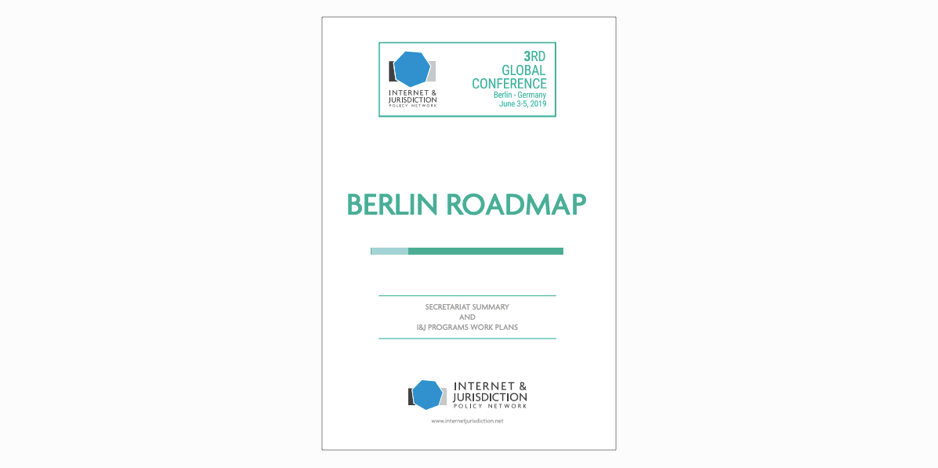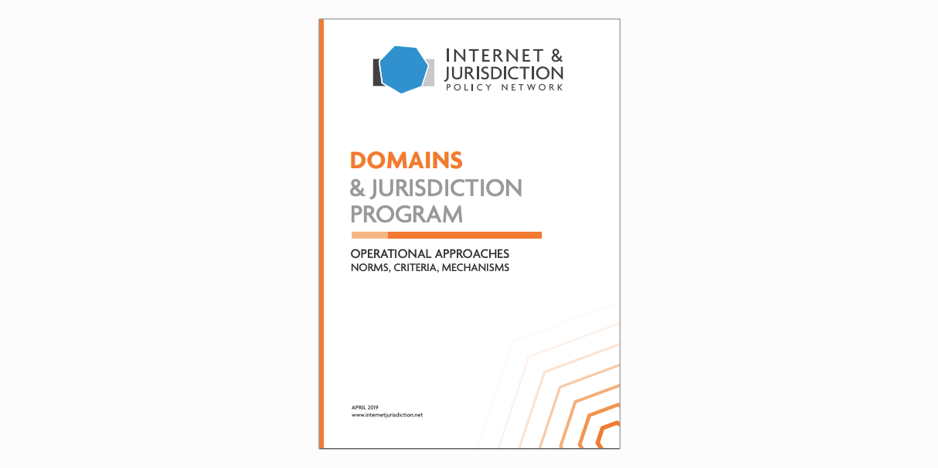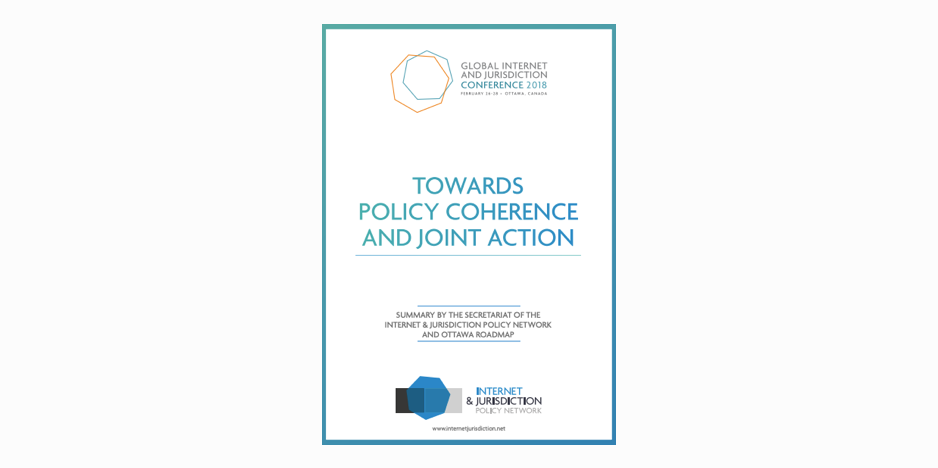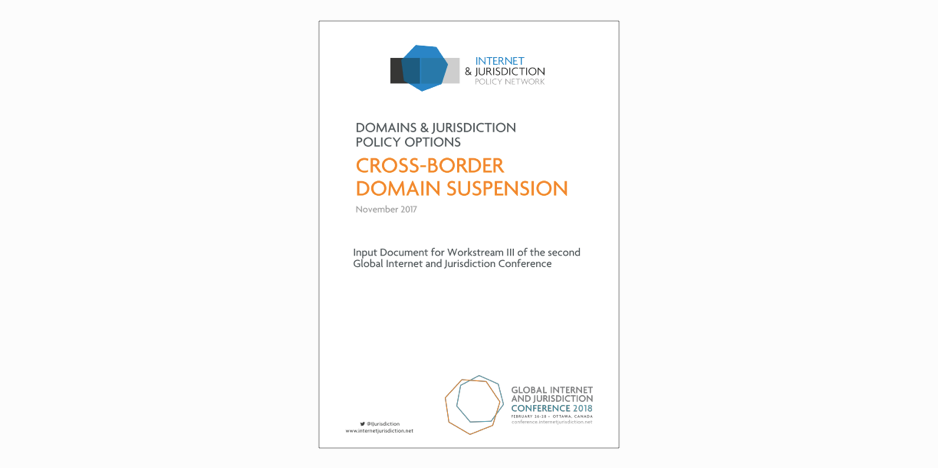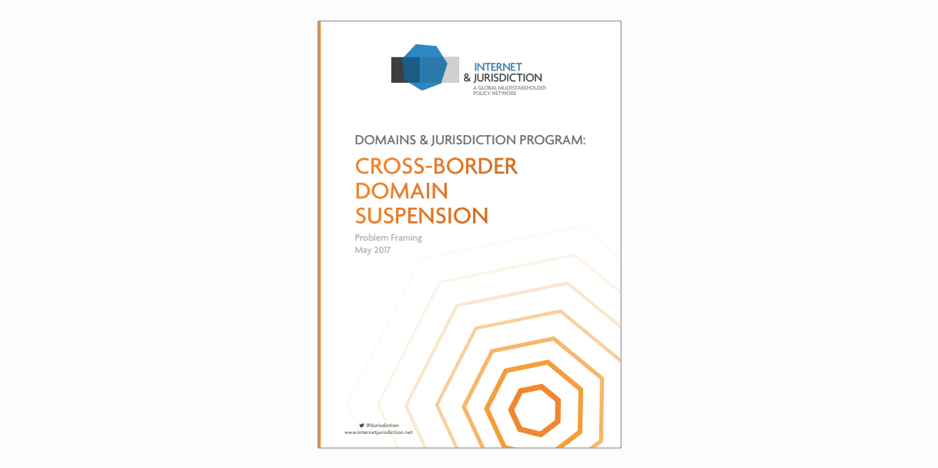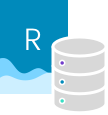From framing problems in common to developing operational approaches, stakeholders in the Domains & Jurisdiction Program have worked collectively towards framing policy problems, sharing knowledge, and designing common policy approaches for cross-border DNS-level action to address abuses.
2022
The Internet & Jurisdiction Policy Network Domains & Jurisdiction Program has prepared a Framing Brief to help operators, law enforcement, security researchers and governments address the challenges of remediating botnets and the threats they pose.
The Internet & Jurisdiction Policy Network has released an outcome on Typology and Framework Components for Trusted Notifiers. It is intended to provide a framework upon which formalized contractual agreements between Notifiers and DNS Operators may be based.
2021
The I&JPN Toolkit on DNS Level Action to Address Abuses provides information on preserving the internet's technical layer when applying DNS Level Action to Address Abuses. It intends to support DNS Operators in the design of their DNS Abuse related activities, Notifiers in the detection and reporting of problematic activity within the DNS, as well as Legislators, and Law Enforcement to determine procedures for dealing with different types of DNS Abuse.
2020
The Domains & Jurisdiction Program is currently working to help develop legal interoperability around cross-border DNS-level action to address abuses in two dimensions:
- Interoperability between actors: to enable automation of the technical workflow among public authorities and private actors across borders to ensure due process at scale.
- Interoperability between norms: to reduce the potential of conflicts in rule-setting, implementation, and enforcement among different regimes.
This schematic workflow maps the respective roles of Notifiers, Registrars and Registries and the sequence of their interactions in the context of reporting, evaluating, and taking action on reports of phishing and malware.
Download here
The document lists and explains the various technical actions that DNS Operators may employ to combat technical abuse and the effects and limitations of each action.
Download here
The document lists a series of questions Notifiers should ask themselves in order to determine that making a notice is appropriate. It aims to assist Notifiers in ensuring that Notices are addressed in an efficient and effective manner.
Download here
DNS Operators receive technical abuse complaints (“Notices”) from a variety of sources representing different types of stakeholders in the DNS ecosystem (“Notifiers”). The document provides an overview of the types of notifiers, as well as examples of entities or persons that fall within each given type.
Download here
DNS Operators frequently receive complaints of technical abuse “Notices” in a broad diversity of formats that often do not contain sufficient information for investigation and action. The resource proposes a list of components that support actionable Notices for reporting technical abuse.
Download here
DNS Operators receive technical abuse complaints (“Notices”) from a variety of sources representing different types of stakeholders in the DNS ecosystem (“Notifiers”). The document provides an overview of the types of notifiers, as well as examples of entities or persons that fall within each given type.
Download here
The I&JPN Secretariat Framing Brief aims to help those Domains Name System (DNS) Operators who are taking proactive measures to tackle COVID19-related abuse at the DNS level. The document includes a set of structuring criteria and highlights the threshold to be met for action as imminent harm to the public.
Download here
To resource guides government representatives, law enforcement, and other actors, in their response to requests to tackle online abuses and help build an understanding of how the DNS works in practice.
Download here
The Berlin Roadmap consists of detailed Work Plans for the three thematic I&J Programs and is the outcome document of the 3rd Global Conference of the Internet & Jurisdiction Policy Network in Berlin in June 2019.
Download here
Intense work in the Contact Group to develop scalable, interoperable and resilient solutions produced Operational Approaches proposing:
- Norms – to help actors organize their own behavior and mutual interactions
- Criteria – to guide actors who develop, evaluate & implement solutions
- Mechanisms – that offer concrete avenues for cooperation
This served as input in the 3rd Global Conference of the Policy Network in Berlin in June 2019.
Download here
The Ottawa Roadmap contains concrete Work Plans for the three Programs of the Policy Network. It is the outcome document of the 2nd Global Conference of the Internet & Jurisdiction Policy Network in Ottawa in February 2018.
Download here
A dedicated Contact Group identified the key questions that could structure new models of transnational cooperation for access to electronic evidence. The resulting Policy Options document served as input for the 2nd Global Conference of the Internet & Jurisdiction Policy Network in Ottawa, in February 2018, where stakeholders defined common objectives and a Roadmap to ensure better policy coherence and structure further work.
Download here
Issues can best be addressed when formulated as problems that stakeholders have in common rather than with one another. Reflecting exchanges among stakeholders at the 1st Global Conference of the Internet & Jurisdiction Policy Network in 2016, the Domains & Jurisdiction Framing Paper was developed in 2017 by the Secretariat summarizing the discussions of key stakeholders. This helped actors build a shared vernacular and identify key areas for cooperation.
Download here

